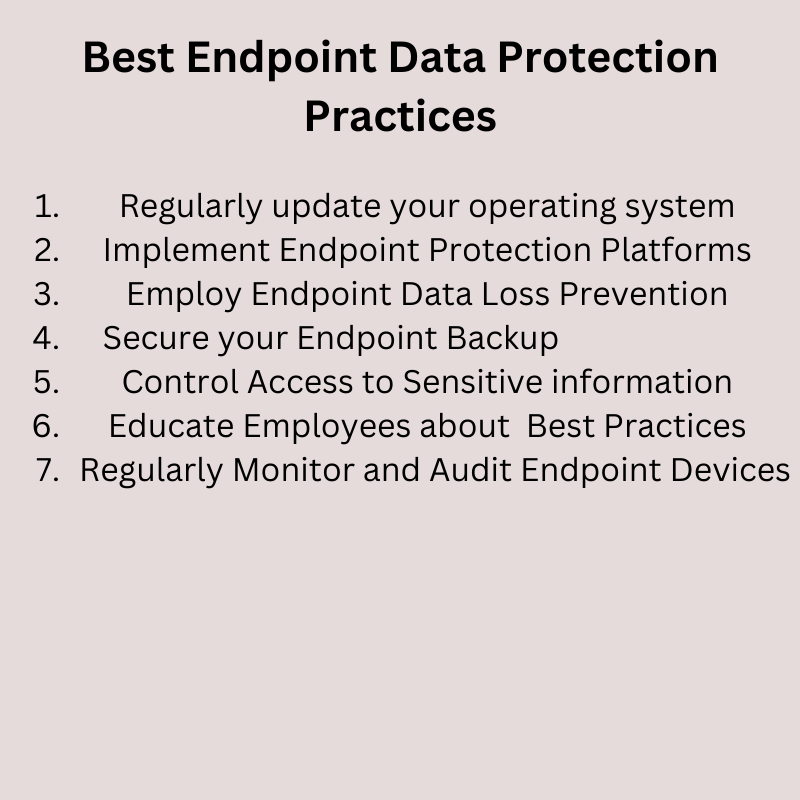
Introduction
In today’s digital world, data is the lifeblood of any business, big or small. But what are data security and privacy, and why should a small business manager care?
This guide is designed to demystify these concepts. In doing so, it will provide practical and easy-to-understand solutions. The goal then is to keep your business’s data safe and compliant with data privacy laws. Let’s dive in!
Understanding Key Terms
What is Data Privacy?
Data privacy refers to the practices and policies that govern the handling, collection, sharing, and use of sensitive information. This is information that can identify individuals or reveal sensitive details about them. It ensures that this information is only accessed by authorized individuals and used for legitimate purposes. Here are some key categories of data that fall under the umbrella of data privacy:
- Personally Identifiable Information (PII). This includes any information that can directly identify an individual, such as:
– name
– social security number
– address
– phone number
– email address - Protected Health Information (PHI). PHI refers to any information related to an individual’s health that can be linked to a specific person. This can include their health status, provision of healthcare, or payment for healthcare. It’s a category heavily regulated under laws like HIPAA in the United States.
- Financial Information (FI). This category includes details related to an individual’s financial status. This includes data such as bank account numbers, credit card details, income information, etc.
- Sensitive Personal Information (SPI). SPI is a broader category that may include PII, PHI, and other information considered sensitive. This can be information such as sexual orientation, religious beliefs, political affiliations, etc.
- Confidential Business Information (CBI). While not directly related to individuals, CBI includes proprietary business information that needs protection. This includes information such as trade secrets, business strategies, etc.
- Educational Records. This includes information related to a student’s academic performance, attendance, test scores, etc. It is often protected under specific laws like FERPA in the United States.
- Biometric Data. Information related to physical characteristics, such as fingerprints, facial recognition, DNA, etc., also falls under data privacy and data protection.
- Geolocation Information. This includes data related to an individual’s physical location, collected through devices like smartphones and GPS systems.
- Behavioral Information. Online behavior, such as browsing history, purchase history, and other online activities, can also be considered private and requires protection.
- Legal and Employment Records. Information related to an individual’s legal status, employment history, salary, etc., also falls under the purview of data privacy.
Data privacy is not just about protecting specific categories of information. It is also about respecting individuals’ rights and expectations regarding how their information is handled. It requires a comprehensive approach that considers legal compliance, ethical considerations, and technological measures. Thus, it ensures that all types of sensitive information are handled with care and integrity.
What is Data Security?
Data security, on the other hand, is all about protecting data. It ensures that only authorized people can access or modify specific data. In essence, data security is a tailored approach, using various tools and strategies to protect different types of information. It’s a critical aspect of modern business, ensuring that data remains confidential, intact, and available to those who need it. By understanding and implementing data security measures, businesses can build trust and comply with legal requirements.
Different kinds of data may indeed require different methodologies for protection. Here’s an overview of how various types of data might be protected:
- Personally Identifiable Information (PII). Encryption and access controls ensure that only authorized individuals can access this information.
- Protected Health Information (PHI). PHI requires stringent protection due to healthcare regulations like HIPAA. This might include secure data transmission methods, robust authentication processes, and specific access controls tailored to healthcare personnel.
- Financial Information (FI). Protecting financial data might involve additional layers of encryption, secure payment gateways, and regular audits to detect any fraudulent activities.
- Sensitive Personal Information (SPI). This category might require special handling procedures, clear consent mechanisms, and additional security measures like two-factor authentication.
- Confidential Business Information (CBI). Protecting business secrets might involve strict access controls, non-disclosure agreements with employees, and secure collaboration tools.
- Biometric Data. Biometric information might require specialized storage solutions. These could include strict access controls. It may also require regular assessments to ensure that this highly sensitive data is kept secure.
- Geolocation and Behavioral Information. Protecting this data might involve anonymization techniques, clear privacy policies, and user consent mechanisms.
- Legal and Employment Records. These might require secure storage solutions. This includes things like restricted access based on roles within the company. It also could require regular monitoring to ensure compliance with legal requirements.
Data Privacy Laws and Regulatory Requirements
Different countries have various data privacy laws that dictate how businesses must handle personal data. These laws aim to protect individuals’ privacy and require businesses to comply with specific regulatory requirements. Understanding and following these laws is essential for proper handling of personal and sensitive data.
Five of the most significant data privacy laws that companies need to be concerned with are:
- HIPAA: Protects health information. Doctors and insurers must follow it.
- GDPR: A European law but affects U.S. companies dealing with Europeans. Controls personal data use.
- CCPA: A California law. Gives residents control over personal information.
- GLBA: For financial companies. Keeps customer financial information private.
- COPPA: Protects children under 13 online. Websites must follow special rules.
Data Security Tools for Small Businesses
Choosing the Right Data Security Tools
Data security tools are essential for protecting data, including sensitive information like personally identifiable information (PII). Small businesses must choose tools that fit their needs and budget, focusing on preventing unauthorized access and ensuring data safety.
Data Loss Prevention (DLP)
Data loss prevention is a strategy to ensure data doesn’t get lost, misused, or accessed by unauthorized individuals. Implementing DLP can help small businesses keep their data safe and comply with regulatory requirements.
Preventing Data Breaches
Recognizing and Preventing Unauthorized Access
Preventing unauthorized access to sensitive data is crucial. Implementing access controls and educating employees about safe practices can protect data against unauthorized access and potential data breaches.
Protecting Sensitive Data
Protecting sensitive data involves a comprehensive data strategy that includes proper handling, secure storage, and regular monitoring. Small businesses must take proactive steps to protect data and keep sensitive information secure.
Ensuring Data Privacy
Proper Handling of Personal and Sensitive Information
Proper handling of personal and sensitive information is more than a legal requirement; it’s a trust factor with your customers. Implementing clear policies and training staff can ensure data privacy and build customer confidence.
Compliance with Regulatory Requirements
Regular audits and assessments can help ensure compliance with data privacy laws and regulatory requirements. Small businesses must stay up-to-date with the latest regulations to avoid penalties and maintain trust.
Conclusion
Data security and privacy are not just buzzwords. They are essential aspects of running a successful small business in today’s digital landscape. You need to understand key concepts, choosing the right tools, and implementing best practices. Then, small business managers can protect data, ensure privacy, and build a reputation for trust and integrity.
Frequently Asked Questions
How Can I Prevent Data Breaches in My Small Business?
Implementing data security tools, access controls, and regular monitoring can help prevent data breaches. Educating staff about safe practices is also vital.
What Are Data Privacy Laws, and How Do They Affect My Business?
Data privacy laws regulate how businesses handle personal data. Compliance is essential to avoid legal issues and maintain customer trust.
How Can I Ensure Data Privacy in My Business?
Implementing clear policies, using secure storage solutions, and training staff can ensure data privacy. Regular audits can also help maintain compliance with laws and regulations.
What Are the Best Tools to Protect PHI (Protected Health Information)?
Protecting PHI requires a combination of tools and practices. Some of the best tools include:
– encryption solutions for securing data both in transit and at rest
– firewalls to control incoming and outgoing network traffic
– access controls to limit who can access PHI
– regular security audits to identify potential vulnerabilities.
Additionally, training staff on proper handling of PHI and implementing clear policies can further safeguard this sensitive information.
How Can I Ensure Compliance with Data Privacy Laws?
Ensuring compliance with data privacy laws involves understanding the specific regulations that apply to your business. Possibly regulations such as GDPR, HIPAA, or CCPA.
Key steps include:
– conducting regular risk assessments
– implementing proper security measures
– creating clear privacy policies
– obtaining necessary consents
– maintaining transparent records of data processing activities
– collaborating with legal experts specializing in data privacy laws
– investing in compliance management tools
Take the time to understand and implement data security and privacy practices!
By doing so, small business managers can create a safer, more trustworthy environment for both customers and employees. The investment in proper handling and protection of data is an investment in the future success of your business.

Experienced cybersecurity analyst, software engineer, patent attorney, worked with Linux, Windows, AWS, lots of security tools. Hope to help people do the right things and do the things right!


